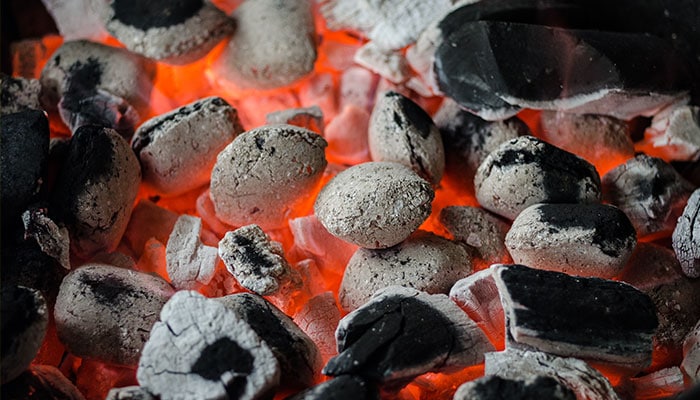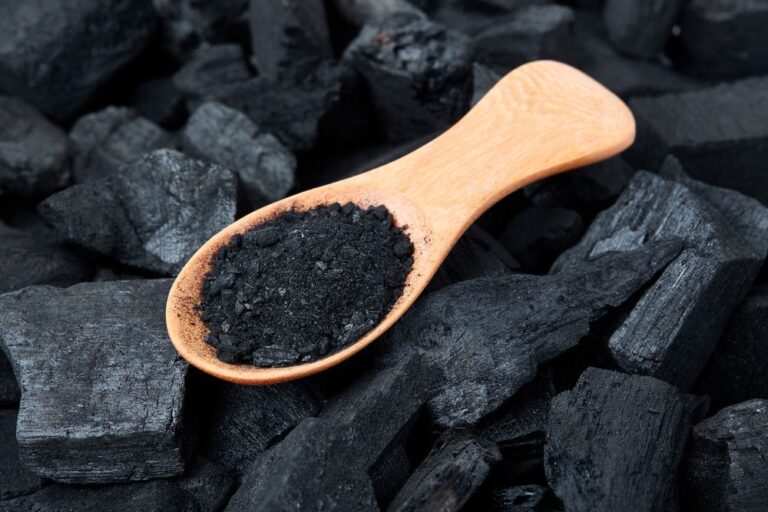Coconut Briquettes: The Eco-Friendly Fuel Revolution
As the world increasingly turns toward more sustainable and eco-friendly alternatives, coconut briquettes are rapidly emerging as a revolutionary fuel source. Derived from the abundant and often discarded shells of coconuts, these briquettes offer a cleaner, more efficient, and environmentally responsible alternative to traditional fuels such as wood charcoal and fossil fuels. Moreover, they help pave the way for cleaner energy solutions.
What Are Coconut Briquettes and Why They’re Eco-Friendly?
Coconut briquettes are compact, carbonized blocks made from coconut shells that have undergone a carbonization process to become charcoal. Unlike regular wood charcoal, which is derived from trees, these briquettes use the waste from the coconut industry specifically, the discarded shells that people often leave to rot or burn without proper processing. Thus, this process reduces waste and helps minimize environmental harm.
The coconut shells undergo carbonization, where they are exposed to heat in a low-oxygen environment, allowing moisture and volatile substances to be removed. This process results in pure carbon, which becomes the core of the briquettes. As a result, the briquettes are dense, efficient, and ready for use as an environmentally-friendly fuel source.
These solid blocks come in different forms such as cubes, cylinders, and hexagons, and are used for a wide range of purposes, from home cooking and barbecuing to large-scale industrial heating. Their adaptability makes them ideal for both small and large-scale applications.
The Coconut Briquette Production Process: From Waste to Fuel
The production of coconut briquettes involves several key steps, all of which help create a high-quality, efficient fuel source:
1. Collection of Coconut Shells for Briquette Production
The process begins when people collect coconut shells, typically discarded after harvesting the coconut meat and water. Instead of being treated as waste, these shells become valuable fuel, helping reduce environmental impact. Furthermore, this step supports the circular economy by making use of previously unused resources.
2. Carbonization of Coconut Shells into Charcoal
After collecting the shells, manufacturers carbonize them, meaning they heat them in a low-oxygen environment to remove moisture and volatile substances. As a result, the shells turn into charcoal, rich in carbon and ready for further processing.
3. Crushing and Grinding of Charcoal for Briquette Creation
The carbonized charcoal is pulverized. This powder is then prepared for the next step compression into briquettes. Ensuring uniformity in the size of the charcoal particles helps achieve a more even and steady burn when the briquettes are used.
4. Binding the Charcoal Powder for Briquette Formation
Next, the charcoal powder mixes with a natural binding agent, often starch, which helps hold the briquettes together. This process not only strengthens the briquettes but also ensures they remain intact during combustion.
5. Compression to Form Dense Briquettes
The mixture then compresses under high pressure, forming a uniform and dense product. As a result, the briquettes burn slowly and consistently, releasing energy efficiently.
6. Drying and Final Preparation of Briquettes for Use
Finally, workers dry the briquettes to remove any remaining moisture, preparing them for use as fuel. Once dried, the briquettes are ready to deliver sustainable energy for various applications, whether in homes or industrial settings.
Environmental Benefits of Coconut Briquettes as a Fuel Source
Coconut briquettes offer many environmental benefits that make them an attractive option for sustainable energy consumption.
Sustainability: Turning Coconut Shells into Eco-Friendly Fuel
The primary raw material for these briquettes coconut shells are abundant by-products of the coconut industry, especially in tropical countries. Instead of allowing people to discard or burn these shells, we recycle them into a valuable and renewable fuel source, reducing waste and minimizing environmental damage.
Lower Carbon Emissions with Coconut Charcoal Briquettes
Coconut charcoal offers a cleaner burn compared to traditional wood or charcoal. It produces lower amounts of smoke, ash, and carbon dioxide when burned. Therefore, it is a more eco-friendly choice, as it reduces air pollution and greenhouse gas emissions.
Reducing Deforestation with Sustainable Coconut Charcoal
Using coconut charcoal as an alternative fuel reduces the demand for wood-based charcoal, which often causes deforestation and habitat loss. Therefore, by choosing these briquettes, we support sustainable practices and protect vital ecosystems.
Minimal Waste Production When Burning Coconut Briquettes
Unlike many other fuel sources, coconut charcoal produces very little waste when burned. In fact, it leaves behind only a small amount of ash, making it easy to clean and dispose of.
Practical Benefits of Using Coconut Charcoal Briquettes
Beyond their environmental advantages, these briquettes offer practical benefits that make them a superior fuel source.
Long-Lasting Combustion for Efficient Heat
A major benefit of these briquettes is their extended burn time. Because of their high carbon content and low moisture levels, they burn more slowly and consistently than regular wood charcoal, providing reliable heat for longer periods. As a result, they are ideal for grilling, barbecuing, and industrial applications that require sustained heat.
High Energy Efficiency of Coconut Charcoal
Coconut charcoal offers a higher calorific value than conventional wood charcoal, meaning it generates more heat per unit of fuel. As a result, it is more efficient, allowing users to need fewer briquettes to produce the same amount of heat, which translates to long-term cost savings.
Minimal Smoke and Reduced Odor: A Healthier Fuel Choice
Coconut briquettes produce less smoke and have a much milder odor than wood-based charcoal. This is particularly advantageous for indoor use, as it reduces air pollution and makes them safer to use in poorly ventilated spaces.
Economical Choice with Long Burn Time
While these briquettes may have a higher upfront cost compared to traditional charcoal, their long burn time and efficient heat output make them a more economical choice in the long run. Therefore, fewer briquettes are required for each use, which translates to lower fuel consumption and reduced costs over time.
Healthier Fuel for Indoor Use: Low Emissions from Coconut Charcoal
Since coconut briquettes produce lower emissions, including carbon monoxide, they are safer for indoor use compared to other fuels. This is especially crucial for households, restaurants, and industries where cooking or heating takes place in enclosed spaces.
Versatile Applications of Coconut Briquettes
These briquettes are highly versatile and can be used for a variety of purposes:
Barbecuing and Grilling with Eco-Friendly Briquettes
Coconut briquettes are becoming increasingly popular in the food industry for grilling and barbecuing. With their consistent heat and low smoke production, they are ideal for cooking, ensuring food is cooked evenly without an overpowering smoky flavor.
Industrial Heating with Coconut Briquettes for Sustainable Energy
In industrial settings, these briquettes are used for high-heat processes such as metal smelting, ceramics firing, and even in power generation. Given their high energy output and long burn time, they are suitable for industrial heating applications.
Home Heating with Clean-Burning Briquettes
Coconut briquettes can also be used for home heating, particularly in regions where alternative energy sources are in high demand. Thanks to their clean-burning properties, they are ideal for use in stoves and fireplaces.
Shisha and Hookah: Slow-Burning Coconut Briquettes for Enjoyable Sessions
The use of coconut briquettes is also popular in the shisha and hookah industry. Their slow burn, low ash, and reduced smoke make them a perfect choice for these smoking applications.
Why Coconut Charcoal Briquettes Will Lead the Future of Fuel
As global energy demands continue to rise and the need for sustainable alternatives becomes more urgent, coconut briquettes stand out as an efficient and eco-friendly solution. By utilizing renewable resources and producing minimal emissions, these briquettes offer a practical alternative to fossil fuels and wood-based charcoal.
The advantages of these briquettes, from their high energy efficiency to their environmental benefits, position them as a key player in the future of fuel. Whether for households, industries, or restaurants, coconut briquettes are helping pave the way for a cleaner, more sustainable energy future.





